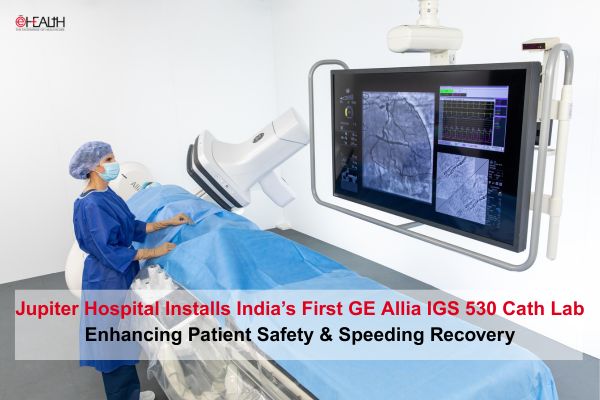
The healthcare innovation industry is set to benefit from a groundbreaking advancement by scientists at the Jawaharlal Nehru Centre for Advanced Scientific Research (JNCASR), an autonomous institute under the Department of Science and Technology (DST), Bengaluru. These researchers have developed flexible near-infrared (NIR) plasmonic devices that promise to revolutionize wearable sensors, medical imaging tools, and other optoelectronic applications. Utilizing cost-effective scandium nitride (ScN) films, this innovation addresses critical challenges in the development of adaptable and scalable healthcare technologies.
Cost-Effective Solutions for Next-Generation Healthcare Devices
Traditional plasmonic materials, such as gold and silver, are expensive and rigid, limiting their application in modern healthcare devices. The JNCASR team, led by Prof. Bivas Saha, introduced an innovative approach combining ScN films with van der Waals layer substrates. This combination enables the creation of flexible and high-quality plasmonic structures, paving the way for transformative solutions in biomedical imaging and wearable healthcare technologies.

“Scandium nitride’s affordability and compatibility with flexible substrates present a unique opportunity for the healthcare innovation sector to rethink how optoelectronic devices are designed and deployed,” Prof. Saha explained.

Transforming Healthcare Through Advanced Plasmonics
The ability to propagate NIR plasmon-polaritons — critical for many optical applications — positions ScN as a frontrunner for creating adaptive healthcare devices. These devices are expected to enhance precision in diagnostics, improve wearable sensor technologies, and contribute to more effective medical imaging tools.

For healthcare companies, this research represents a scalable and cost-efficient material foundation for developing next-generation devices. Such advancements align with the growing demand for innovative healthcare solutions that combine performance with adaptability to meet diverse market needs.

Broad Applications in the Healthcare Ecosystem
This breakthrough has significant implications for industries including diagnostics, telemedicine, and patient monitoring. Wearable devices integrated with flexible NIR plasmonic technology can deliver real-time data and insights, improving patient outcomes and fostering new opportunities for business growth in the healthcare sector.
Debmalya Mukhopadhyaya, the study’s first author, highlighted the potential impact: “The scalability and adaptability of scandium nitride in plasmonic devices can accelerate the development of cutting-edge healthcare technologies for stakeholders.”
Driving Innovation in the Healthcare Landscape
As the healthcare innovation industry increasingly focuses on personalized medicine and precision diagnostics, flexible plasmonic devices offer a competitive edge. By bridging the gap between cost-efficiency and high performance, this research empowers businesses to integrate advanced technologies into their product pipelines.
Also Read: 16,586 Health Facilities Achieve NQAS Certification: Driving Quality in Public Healthcare
This development reinforces India’s role as a key player in global healthcare innovation, demonstrating how material science can address the evolving needs of Indian healthcare providers. With the integration of flexible NIR plasmonics, companies can unlock new possibilities for growth, efficiency, and improved healthcare delivery systems.
Be a part of Elets Collaborative Initiatives. Join Us for Upcoming Events and explore business opportunities. Like us on Facebook , connect with us on LinkedIn and follow us on Twitter , Instagram.
"Exciting news! Elets technomedia is now on WhatsApp Channels Subscribe today by clicking the link and stay updated with the latest insights!" Click here!
















